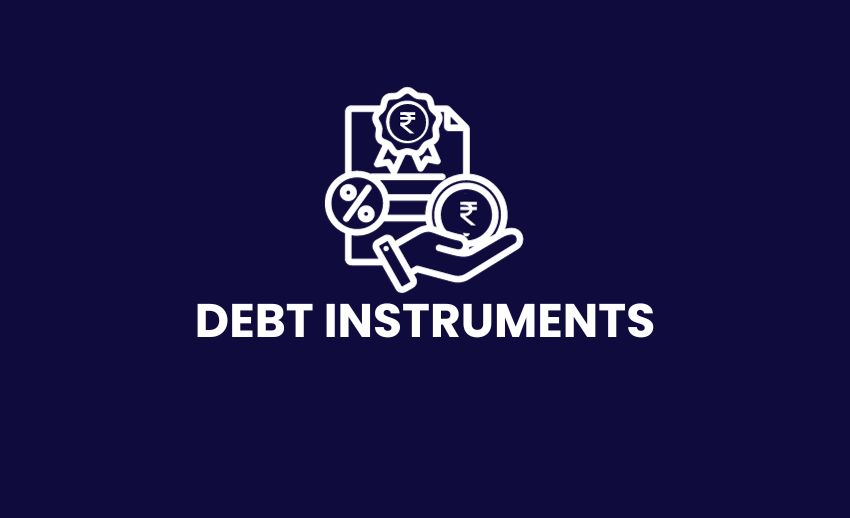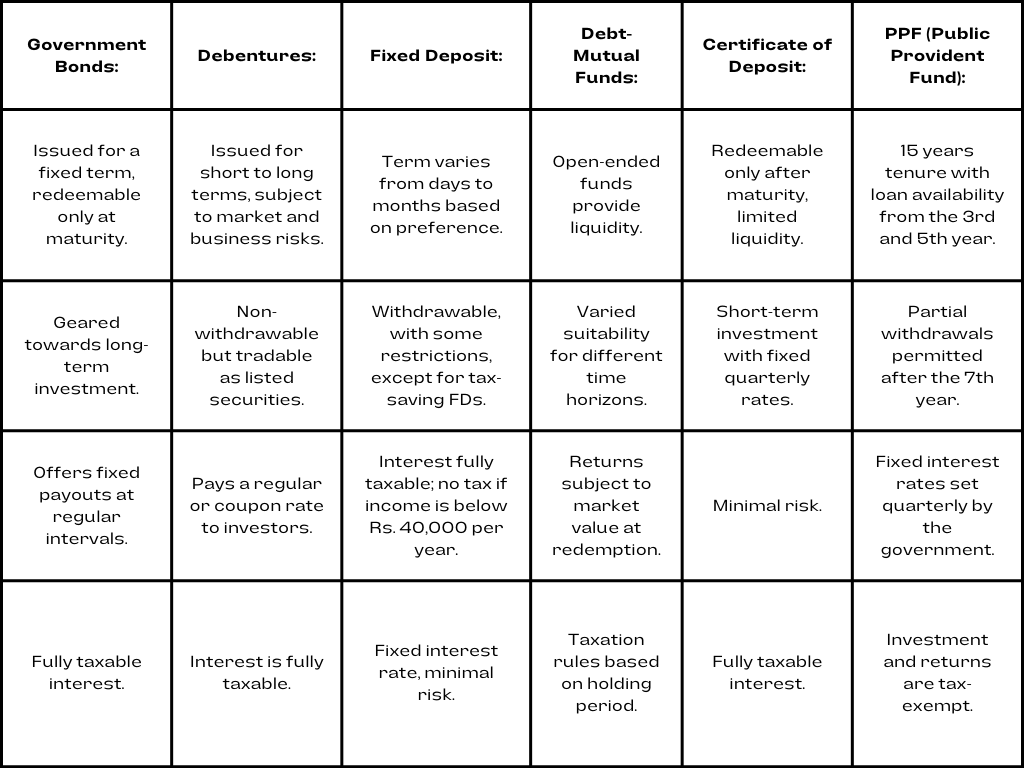
Debt instruments, in financial terms, represent a category of assets that signifies a contractual obligation for the issuer to repay the investor under predetermined terms. Essentially, when an individual, company, or government entity issues a debt instrument, they are essentially borrowing money from the investor. In return, the investor receives periodic interest payments and, upon maturity, the return of the principal amount.
These instruments play a fundamental role in the financial markets, providing a means for entities to raise capital and for investors to secure fixed income returns.
The debt market is where investors trade various debt instruments, offering regular interest payments and principal repayment at maturity. For instance, if Varun invests Rs. 100 in a debt instrument with a 10% return over 1 year, he receives Rs. 110 at maturity.
In India, entities like
are authorized by the Reserve Bank of India to issue these debt instrument.

In India, various entities are authorized to issue debt instruments, contributing to the diverse landscape of the debt market. The primary issuers include:
Central and State Governments:
Municipal Corporations:
Government Agencies:
Banks:
Non-Banking Financial Companies (NBFCs):
Public Sector Units:
Corporates:
In the interconnected world of finance, these instruments work together, ensuring capital flows efficiently, interest rates respond to market dynamics, and the broader economy thrives. Whether you’re an investor or simply curious about the financial realm, understanding the symbiotic relationship between debt, money markets, and commercial papers is essential to comprehend the complex mechanisms that underpin our financial landscape.

